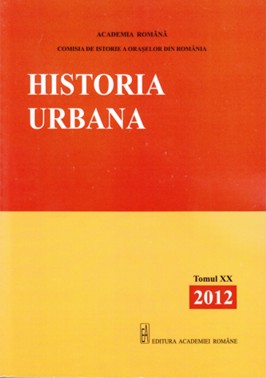Reclame şi bani în Bucureştiului ocupat (1916–1918)
Advertisements and Money in the Occupied City of Bucharest (1916–1918)
Author(s): Nadia ManeaSubject(s): History
Published by: Editura Academiei Române
Keywords: Military Administration; depreciation; national currency; lei; commerce; advertisements;
Summary/Abstract: Bucharest had been occupied by the German Army and administrated by the Imperial German Government for almost two years (1916–1918). In this city, the everyday life of the population that remained to live here or that of those people who had taken refuge in the regions of Oltenia, Dobrogea and in the South of Bucharest was seriously marked by the new situation. The introduction of the Gregorian calendar and of the new monetary signs (not accidentally named lei, too, but also known as lei of occupied country or war money) were only the first measures of the new authorities. They immediately continued with the enforcement of strict regulation regarding the supply with goods of the city population, so that they could send to the war zone or even to Germany a significant quantity of cereal and other necessary goods. The German organizational spirit was obvious and it was founded the Central Office for City Supply. Many of the measures imposed to the inhabitants of Bucharest marked significantly the commercial activity of the city which had been, for the last two years, under the sign of the war in Europe, even though Romania was not officially in war. Moreover, the massive abandonment of the city before the German occupation led to confusion in many businesses. Therefore, the measures taken by the occupation authorities (cards for bread; tickets for wood, coal, sugar, wheat and corn; compulsory listing the prices in stores, pubs and taverns, establishing the fair days two times a week – on Tuesday and Friday) show the intention of reorganization of the confused city after the central institutions have taken refuge in Iasi, but according to the intentions of economical exploitation of the Romanian territory by the occupational troops. Beyond this strict and unfit context for a normal commerce, there was no lack of inventive initiatives meant to help the survival of business. Thus, a company with the headquarters on number 7, Victoria Road announced its customers that they could buy “gramophones with 24 songs on choice” in 20 installments. The novelty of the announcement was the important detail that the installments were going to be paid after the peace was to be signed, although that moment was not yet known. Likewise, a shoes store insisted on convincing its customers that it had shoes with wooden sole which was not only strong, but also flexible.
Journal: Historia Urbana
- Issue Year: XX/2012
- Issue No: 20
- Page Range: 217-231
- Page Count: 15
- Language: Romanian
- Content File-PDF

